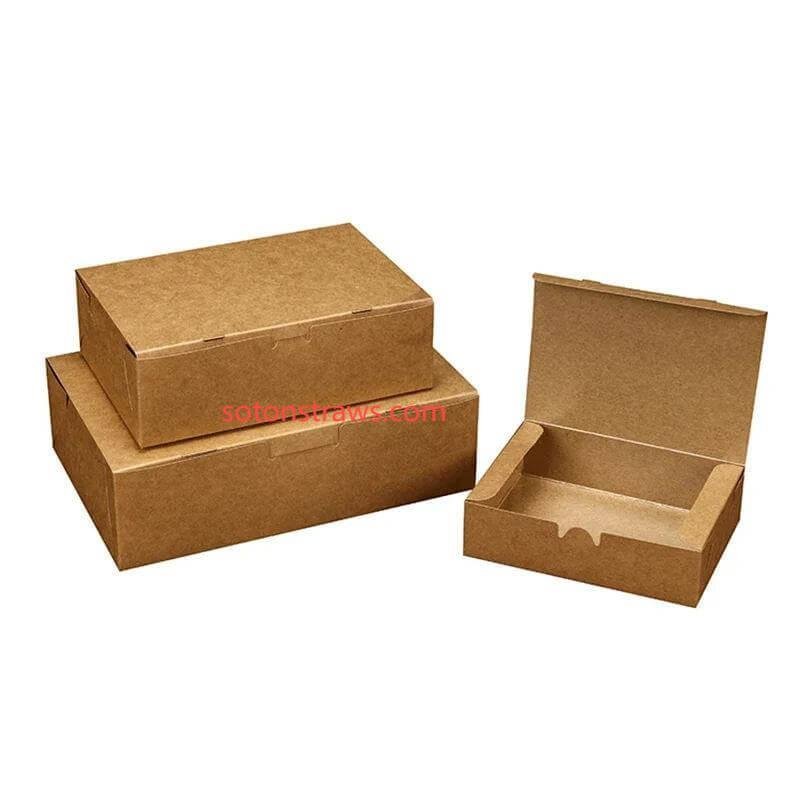In an era of tightening global sustainability mandates, the disposable kraft box has evolved from a humble packaging solution to a strategic asset for cross-border commerce. As international regulations like the EU’s Packaging and Packaging Waste Regulation (PPWR) take effect, businesses must navigate a dual challenge: aligning with eco-compliance while ensuring packaging withstands rigorous logistics demands—a balance that redefines competitiveness in the global marketplace.
The PPWR’s emphasis on recycled content and PFAS-free coatings compels manufacturers to innovate. Disposable kraft box designs now integrate agricultural residues like sugarcane bagasse and rice husk ash, boosting circularity without compromising structural integrity. Simultaneously, PFAS alternatives—plant-based waxes and biodegradable laminates—are replacing toxic coatings, ensuring compliance with food safety standards while meeting EU’s material recovery targets. These advancements not only satisfy regulatory benchmarks but also cater to eco-conscious consumers who prioritize ethical sourcing and end-of-life recyclability.
Amazon’s updated FBA policies further intensify the pressure. With mandates requiring sellers to independently secure sharp-edged products, kraft boxes are being reengineered with honeycomb cores and reinforced corrugated liners. These innovations prevent puncture risks while maintaining lightweight profiles—a critical advantage for cost-sensitive cross-border shipping. Modular designs are also gaining traction, allowing businesses to adapt packaging configurations to regional regulations, such as Asia’s preference for compact formats versus Europe’s emphasis on recyclability.
Supply chain agility is equally vital. Tariff volatility, exemplified by U.S. countervailing duties, demands localized production strategies. Forward-thinking manufacturers are establishing regional hubs in Southeast Asia and Eastern Europe, leveraging tax incentives and shorter logistics routes to mitigate cost spikes. Blockchain-enabled traceability systems further enhance transparency, enabling brands to verify recycled content percentages and PFAS compliance across jurisdictions—a necessity for maintaining cross-border trust.
The future lies in closed-loop ecosystems. Post-consumer kraft boxes are being repurposed into biodegradable filler materials or community art projects, fostering consumer engagement while diverting waste from landfills. AI-driven lifecycle assessments are optimizing material blends for specific climates, ensuring packaging retains durability in humid tropical regions or during freezing transit conditions.
click sotonstraws.com to reading more information



